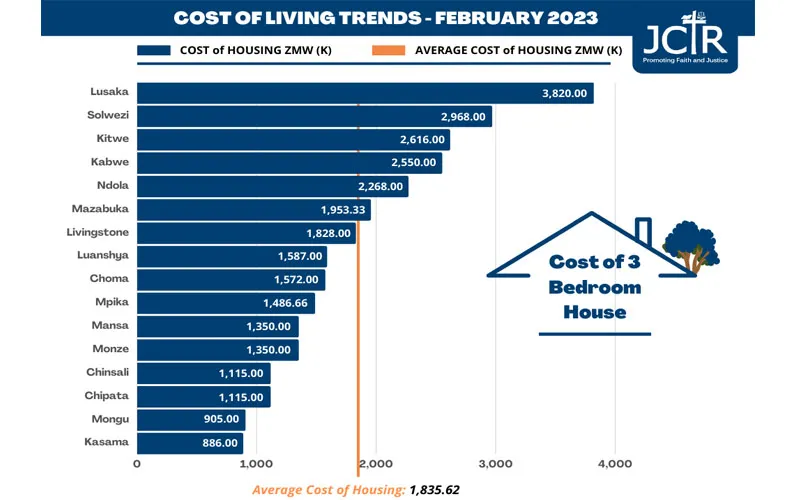The delayed restructuring negotiations of Zambia’s debt under the G20 Common Framework have also caused “a new wave of upsurge in food prices and other essential commodities” from January this year, the member of the Society of Jesus (Jesuits) says.
He adds that Zambia’s Ministry of Finance and National Planning attributes the weakening currency to the delayed negotiations.
The Minister of Finance and National Planning in the Southern African nation, Dr. Situmbeko Musokotwane, told Parliament that the country’s external debt increased from USD13.04 billion in December 2021 to USD13.96 billion in January 2023.
From the perspective of the cost of living, Fr. Muyebe says, “a weaker currency implies greater import costs for an import-dependent country like Zambia, with the brunt of this burden being passed on to consumers in the form of higher prices on food, fuel, and other essential commodities.”
JCTR Basic Needs and Nutrition Basket (a monthly research outlining the cost of living) has surpassed the K9,000 (USD424) mark since January 2023, he says, adding, “This is considerably higher than the average monthly income in Zambia which stands at K4, 215, according to the 2021 Labour Force Survey by the Zambia Statistics Agency.”
Fr. Muyebe says it is unfortunate that price increments are not accompanied by corresponding increments in salaries, which means that “household’s real income is reduced and so is the household’s capacity to purchase the same quantity and quality of food and other basic necessities.”
“Government must address any impediments to concluding the debt restructuring process in order to arrest the escalating cost of living,” he says in his March 31 statement titled, “The Nexus Between Zambia’s Debt Crisis and the Cost of Living.”
The Jesuit Priest further says that debt restructuring “is critical in stabilizing the economic fundamentals which are crucial for economic growth and poverty alleviation.”
He urges Zambia’s government to put in place “a clear medium-term domestic resource mobilization strategy that will enable substantial revenue generation for social sector spending, which is crucial to addressing the high living cost.”
Magdalene Kahiu is a Kenyan journalist with passion in Church communication. She holds a Degree in Social Communications from the Catholic University of Eastern Africa (CUEA). Currently, she works as a journalist for ACI Africa.








